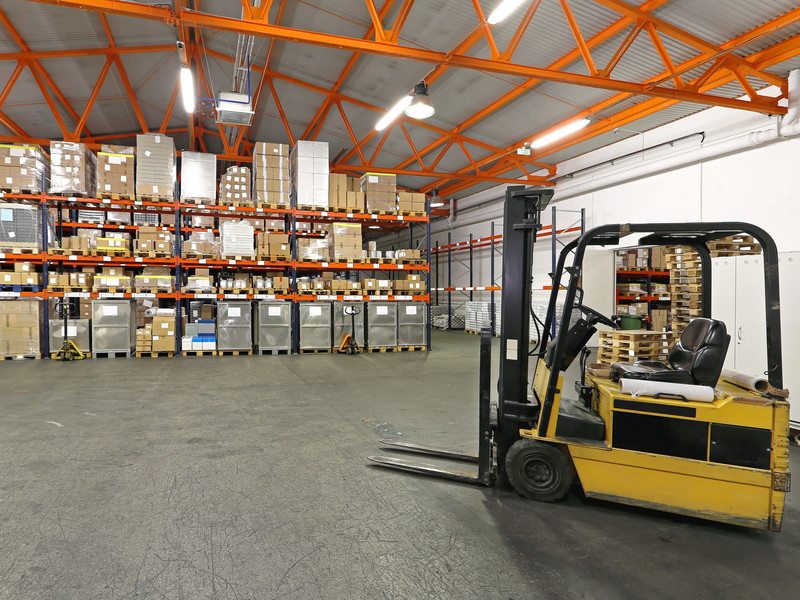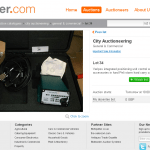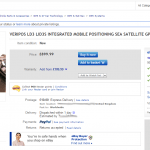Handling Lost Property
Is your parcel company actually taking reasonable steps to trace and communicate with the true owners of goods before selling them on? Is there any independent way to verify this?
Most parcel companies are private companies. They are not subject to random spot-checks by independent third parties.
To the best of my knowledge, the only parcel company that has ever been somewhat transparent about what it does with ‘undeliverable’ items is Royal Mail. Sunday & Daily Mirror writer Steve Myall visited The Royal Mail National Return Centre,Belfast, in 2013. This was before privatisation.
When most private parcel companies open doors to the media, it’s usually a controlled public relations exercise.
What proof do we have that parcel companies actively make reasonable efforts to trace and communicate with the true owners of goods or do they simply flog them on?
Selling Lost Property
How, where and to whom does your parcel company sell (dispose) of your lost items ?
There are confidentiality agreements in place between auction houses, other private businesses and parcel companies.
When parcel companies bought goods back off me, I signed secrecy agreements. This is why I have mentioned some parcel companies by name and not others.
No parcel company has ever stated how they go about selling undelivered and unclaimed consignments. Most terms and conditions and/or conditions of carriage simply use words like ‘dispose’ or ‘disposal’ which are more commonly associated with throwing things in the bin and not selling them, which is what they do with the overwhelming majority of items.
I’ve traced items back to their true owners from simply looking at images on online auction websites.
In the following example, I watched an item being sold by City Link via City Auctioneering. An associate of mine contacted the company that produced the item. Their final response was as follows:
“Please be advised that this matter is now in the hands of the police and our legal representatives so we are not in any position to provide information to unknown parties.”
I did contact their local police constabulary to see if I could assist as I had information about the whereabouts of the item, but the police said that the item had not been reported as lost or stolen with them.
I then observed the eBay seller who bought this item, selling it on eBay. This poor chap had been contacted direct by the same company whose name I have omitted:
“After providing ——- with the reciept they contacted [redacted] who confirmed the item was indeed lost in transit and not from a private sale or stolen.
——- confirmed this with me but sent a long e-mail with legal information, which i did not understand, but ended it by threatening court action.
It was because of this that i caved into their demands and accepted their offer.”
I certainly would not have caved into their demands. Who knows if they had already been compensated for the item? They or their customer should have contacted the respective parcel company instead of having a go at this eBay seller.
- Selling an item via auction site that would be purchased by an innocent eBay seller who later faced threats of legal action.
- eBay seller listing the item he bought from auction sale.
If there any eBay sellers out there that find themselves in a similar situation, please contact me as I have some experience in a similar case.
The Law
The law that entitles parcel companies to dispose / sell your lost parcels.
The Torts (Interference with Goods) Act 1977 entitles parcel companies to sell goods from undelivered and unclaimed consignments, provided that reasonable steps are taken to trace and communicate with the owners of the goods in question.
Next time your goods get lost in transit and you didn’t take out the optional insurance – don’t write it off altogether. Treat it the same as you would if your bike was stolen, you forgot one of your bags on the train, you misplaced your phone under a newspaper in a coffee shop, can’t find your iPod after coming off the plane… why? Because it’s still your property.
The same law that gives the rights to lost property departments of police constabularies, coffee shops, train operators and airlines to sell your lost property also applies to parcel companies.
With the continued increase in our online shopping habits, I think it’s quite reasonable for us to expect parcel companies to be more transparent about what they do with our lost items. Especially if in most cases, they end up in the public domain at auctions houses across the country and/or eventually on eBay.
-

Celebrity Apogee Super Yacht Party Quincy Jones, Chris Tucker, Petra Nemcova
-
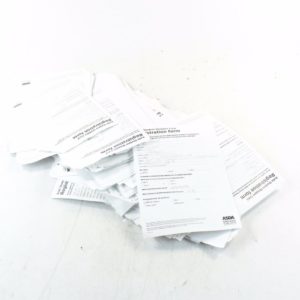
2 Jiffy Bags containing Asda Student Shopper Card Registration Forms
-

A bag containing a quantity of radiology equipment including test objects
-
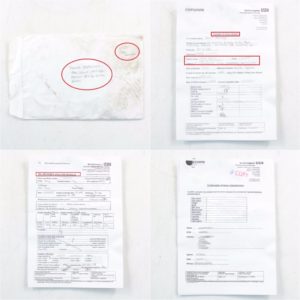
IVF Patient Information Paperwork – Complete Fertility Centre Southampton NHS Foundation Trust
-
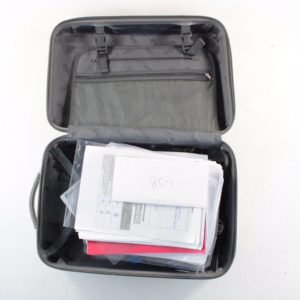
Carphone Warehouse Job Applications Lead Retail 3.0 Detail2Retail Detail2Group
-

APC Overnight Shred-It bag containing Confidential Material for Destruction
-

McGhan Inamed Aesthetics Allergan Gel-Filled Breast Implants
-

Real Action Marker RAM 11S MP5 Rifle Style Paintball Marker
-
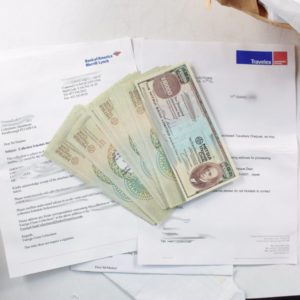
Travelex mail including Thomas Cook travellers cheques
-
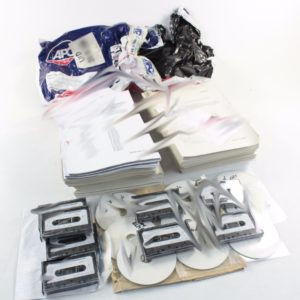
Murder trial legal case documents including Police Evidence
-
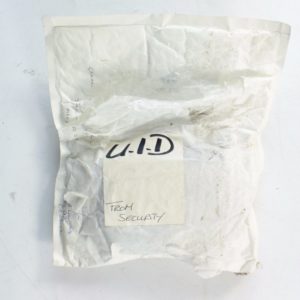
Clip Reel Sangin Then & Now. 202 Field Hospital Camp Bastion Afghanistan Sony DV
-
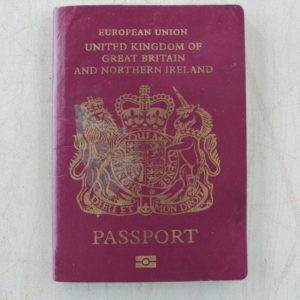
European Union United Kingdom of Great Britain and Northern Ireland Passport
